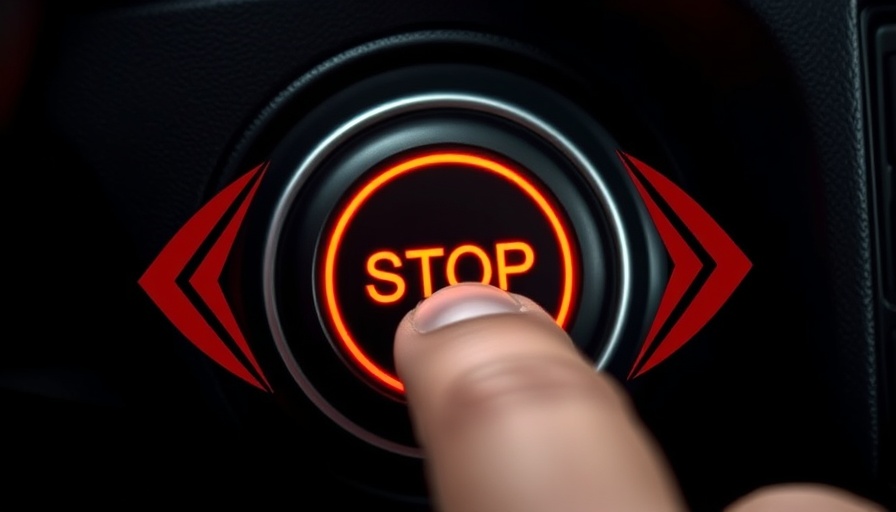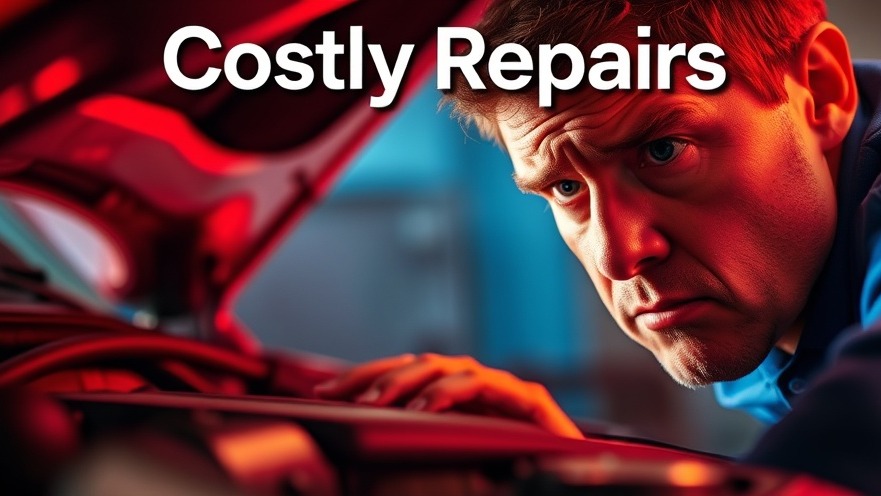
Uncovering the Hidden Costs of Common Driving Mistakes
Driving is a routine part of life for many people, but did you know that certain habits could be secretly ruining your car and emptying your wallet? From aggressive downshifting to ignoring warning signs, these driving habits can lead to expensive repairs down the line. Fortunately, making a few simple changes can save you thousands and extend the life of your vehicle. Let’s dive into the shocking habits that could be putting your car at risk.
We came across '13 Horrible Driving Habits That RUIN Your Car (and Wallet)', which covers common mistakes car owners make—here’s our analysis and how it applies beyond the video.
1. Understanding Engine Braking: The Do's and Don'ts
One of the first problematic habits is engine braking, which can put unwanted stress on your engine components. While this technique can help control speed on steep roads, using it excessively can lead to transmission damage. When you downshift too quickly, you risk creating unnecessary heat and strain on your vehicle’s parts.
Instead of relying on engine braking, practice smooth downshifts and remember that your brakes are designed to handle speed control efficiently. This can save you costly repair bills that run upward of $3,400.
2. The Importance of Warming Up Your Engine
Revving your car’s engine cold is a mistake many drivers make; it’s akin to shaking someone awake from deep sleep. Your engine's oil needs time to warm up and flow properly, and revving too soon can cause significant wear. A simple wait of 30 seconds allows the oil to circulate, protecting your engine from harm.
3. Hurtling Through High Gears
Accelerating in high gear at low RPMs can cause problems you might not even notice right away. This practice forces your engine to work harder and results in inefficient fuel usage, creating carbon buildup that can harm engine performance. To avoid performance issues and maintain fuel efficiency, shift gears at the right RPM range of 2500 to 3,500.
4. Ignoring Temperature and Fluid Levels
Keeping an eye on your car’s temperature gauge is essential. Driving while overheating is an invitation for a disaster—think blown head gaskets or costly engine fires. If you notice the gauge creeping up, pull over without delay, as it can save you from potentially devastating repairs that could total $2,500 or more.
Additionally, don’t ignore fluid leaks, whether they're for oil, brake fluid, or transmission fluid. Any leak can jeopardize your engine and make repairs extremely expensive; early detection of these leaks can save you thousands.
5. Proper Handling of Turbo Engines
For those who drive turbo engines, letting your car idle for a minute after driving is key to preventing turbo failure. When you stop your car abruptly, the heat from the turbo can damage vital components. Letting the vehicle cool down properly can prevent future breakdowns and costly repairs.
6. The Failures of Low Oil Levels
Visualize your engine as a highly responsive machine needing the right amount of oil to operate smoothly. Running your engine on low oil is like trying to run a marathon without enough water — it leads to severe wear and potential catastrophe. Regularly checking oil levels ensures that your engine isn’t at risk and can save you from $2,000 repair bills.
7. Avoiding the Pitfalls of Overloading
Overloading your vehicle may seem harmless, but it strains the engine significantly. It generates excess heat that can warp components and lead to severe engine blowouts. Stay within the vehicle’s load limits to keep your engine healthy and prevent costly repairs.
8. Embracing Routine Maintenance
Skipping routine maintenance is perhaps the most damaging habit of all. Regular oil changes, brake checks, and tune-ups are essential to keep your car running smoothly. The cost of preventive maintenance is significantly less compared to the repairs that could stem from neglect, which can easily run into thousands of dollars.
Conclusion: Take Charge of Your Driving Habits
By identifying and rectifying these prevalent driving habits, you not only reduce the risk of costly repairs, but you also enhance your vehicle's lifespan. It’s worth investing the time to keenly observe how you treat your car on the road. Being proactive and responsible can save you significant amounts of money in the long run—after all, your car is a valuable asset.
For more insights and tips on auto care, remember to regularly check reliable resources and stay informed about your vehicle’s needs. The investment you make now in habit changes and proper maintenance will pay off tremendously down the road!
 Add Row
Add Row  Add
Add 




 Add Row
Add Row  Add
Add 

Write A Comment